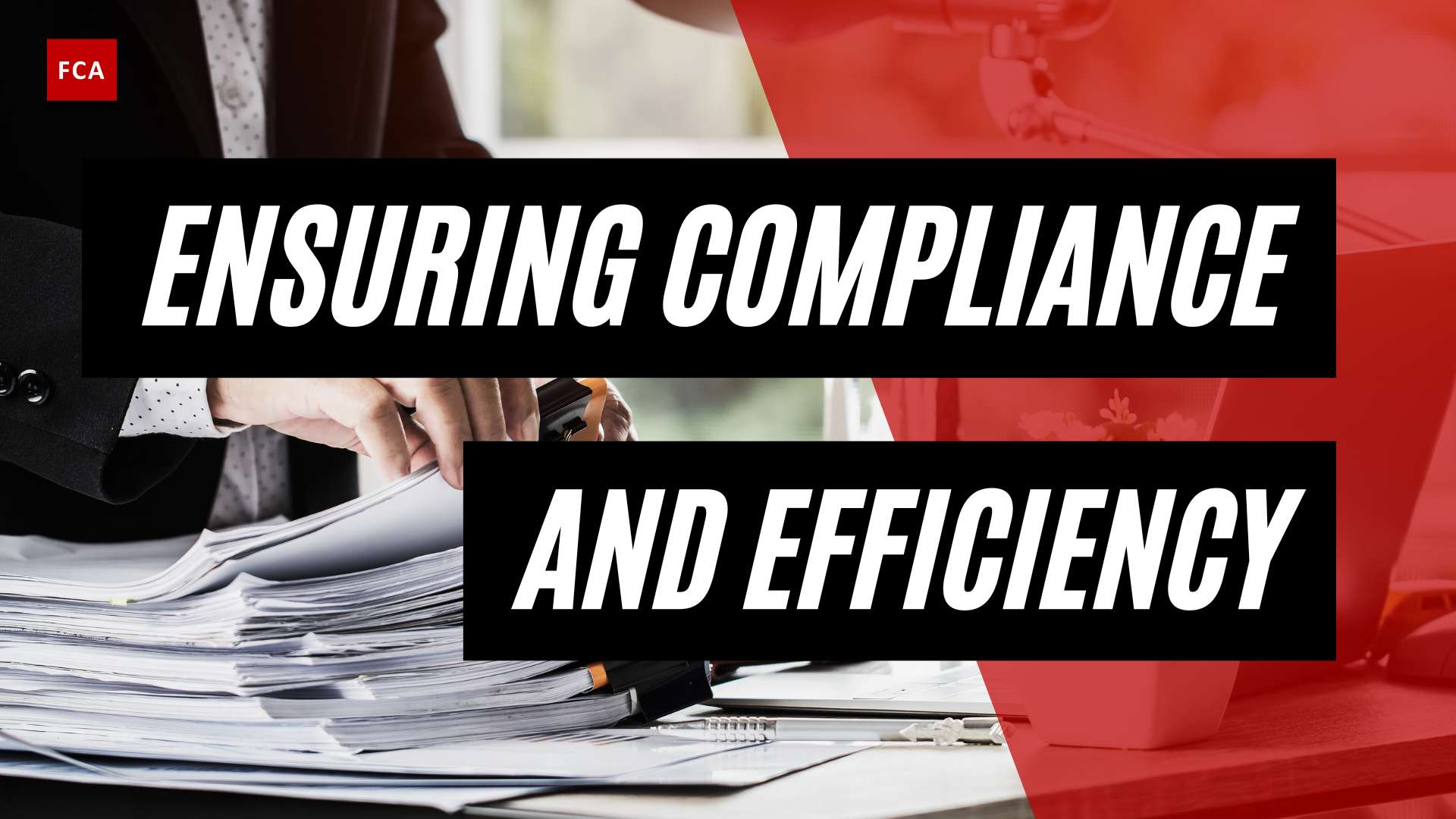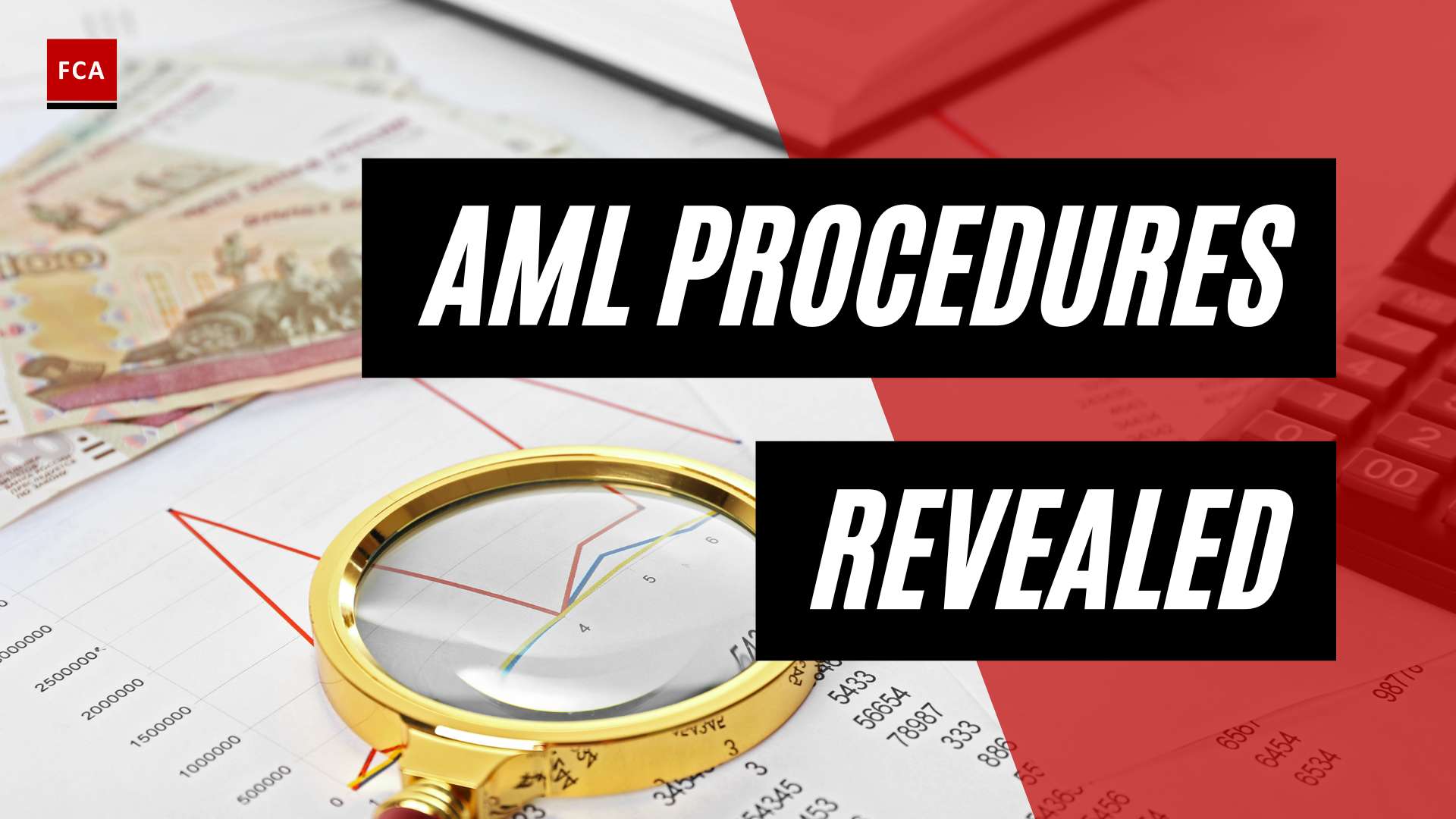Exploring Career Paths in AML
If you’re considering a career in Anti-Money Laundering (AML), it’s important to understand the various career paths available within this field. In this section, we will explore the salary aspects of one of the prominent career paths in AML, which is the AML analyst role. We will also delve into the salary differences based on country and the growth potential associated with experience in AML careers.
AML Analyst Salary
The role of an AML analyst is crucial in identifying and preventing money laundering activities within financial institutions and other organizations. The salary of an AML analyst can vary based on factors such as experience, location, and industry. As of October 2021, the average salary for an AML analyst in the United States was $71,870 per year, according to Salary Expert. It’s important to note that this is an average figure and individual salaries may vary.
AML Analyst Salary by Country
The salary of an AML analyst can also vary significantly by country. For example, entry-level AML analysts in India earned an average salary of $52,451 per year as of October 2021, while mid-career AML analysts in Australia earned an average of AU$90,545 per year during the same period. In Canada, experienced AML analysts earned an average salary of C$88,126 per year. These figures highlight the variation in salaries based on geographical location and local market conditions.
| Country | Average Salary (USD) |
|---|---|
| United States | $71,870 |
| India | $52,451 |
| Australia | AU$90,545 |
| Canada | C$88,126 |
Salary Growth and Experience in AML Careers
Salary growth in AML careers is often influenced by experience and expertise. As an AML analyst gains more experience and develops a strong skill set, they can expect their salary to increase. For example, a senior AML analyst in the United States had an average salary of $96,033 per year as of October 2021, according to Salary Expert.
It’s important to note that salary expectations can also vary based on the country and company. For an AML analyst with 1 year of experience, the salary can range from $45,000 to $60,000 per year, depending on the specific circumstances (Quora). As experience grows, so does the salary potential.
As you progress in your AML career, there may also be opportunities to specialize in specific areas such as AML investigations or become a subject matter expert in a particular industry. These advancements can lead to higher salary prospects and career growth within the field.
Keep in mind that salary is just one aspect of a rewarding AML career. Other factors such as job satisfaction, professional development opportunities, and the ability to make a positive impact in combating financial crimes are also important considerations. To explore more career paths in AML, you can refer to our articles on AML officer jobs and AML investigator careers.
In the next sections, we will further explore the factors that can influence AML career salaries, the rising demand for AML specialists, and the essential skills and knowledge required to thrive in AML careers.
Career Paths in AML
When considering a career in Anti-Money Laundering (AML), there are various paths to explore based on your interests and skills. Three common career paths in the field of AML include AML Analyst, Legal Compliance Officer, and Financial Compliance Analyst.
AML Analyst
An AML Analyst plays a crucial role in detecting and preventing money laundering activities within financial institutions. These professionals are responsible for conducting thorough investigations, analyzing financial transactions, and identifying any suspicious activities that may indicate potential money laundering or terrorist financing.
The salary of an AML Analyst can vary depending on factors such as experience, location, and industry. As of October 2021, the average AML Analyst salary in the United States was $71,870 per year, with senior-level analysts earning an average salary of $96,033 (Salary Expert). In India, entry-level AML analysts earned an average salary of $52,451, while mid-career analysts in Australia earned an average salary of AU$90,545. Experienced AML analysts in Canada earned an average salary of C$88,126 (Salary Expert).
Legal Compliance Officer
Legal Compliance Officers play a critical role in ensuring that companies adhere to applicable laws, regulations, and industry standards. In the field of AML, these professionals focus on developing and implementing compliance programs to prevent money laundering and financial crimes.
The salary of a Legal Compliance Officer can vary based on factors such as location, industry, experience level, and company size. In the United States, the average annual salary for a Legal Compliance Officer is $74,074 per year, with more experienced professionals earning an average salary of $160,386 (source). AML Compliance Officers in the US earn an average annual salary of $98,949.
To pursue a career as a Legal Compliance Officer, individuals should have a strong understanding of relevant legal and regulatory frameworks, possess excellent communication skills, and be able to interpret complex compliance requirements. Ongoing professional development and staying up-to-date with evolving regulations are crucial in this role. Explore more about the AML Officer job and the job opportunities in AML.
Financial Compliance Analyst
Financial Compliance Analysts play a vital role in ensuring that financial institutions comply with regulatory requirements and internal policies. They assess and monitor compliance risks, conduct audits, and develop strategies to mitigate potential compliance issues. In the field of AML, these professionals focus on identifying and preventing money laundering activities within financial organizations.
The salary of a Financial Compliance Analyst can vary based on factors such as experience, location, industry, and company size. In the United States, the average salary for a Financial Compliance Analyst is $67,710 per year, with entry-level analysts earning around $52,000 and senior-level analysts earning up to $108,000 (Vintti). Salaries in this field can be higher in industries such as finance and insurance services, investment banking firms, and large public corporations, with average salaries ranging from $75,000 to $95,000 (Vintti).
To thrive as a Financial Compliance Analyst, individuals should possess a strong understanding of financial regulations, risk management, and data analysis. Relevant certifications, such as Certified Public Accountant (CPA), Chartered Financial Analyst (CFA), or Certified Internal Auditor (CIA), can enhance career prospects and earning potential in this field.
Understanding the career paths available in AML can help individuals make informed decisions about their professional journey. Whether you choose to become an AML Analyst, Legal Compliance Officer, or Financial Compliance Analyst, ongoing professional development and staying abreast of industry trends are essential to succeed in these dynamic roles.
Factors Influencing AML Career Salaries
Several factors influence the salary levels in Anti-Money Laundering (AML) careers. Understanding these factors can help individuals navigate their career paths and make informed decisions about their professional growth. The main factors that influence AML career salaries are location and industry, certifications and specializations, and company size and regulatory oversight.
Location and Industry
The geographical location and industry in which an AML professional works play a significant role in determining their salary. Salaries can vary widely between different countries and regions due to differences in cost of living, economic factors, and demand for AML specialists.
For example, in the United States, the average salary for an AML analyst was $71,870 as of October 2021, with senior analysts earning an average of $96,033 (Salary Expert). In comparison, entry-level AML analysts in India earned an average salary of $52,451, while mid-career AML analysts in Australia earned an average salary of AU$90,545. It’s important to note that these figures are subject to change and may vary based on individual qualifications and experience.
Additionally, the industry in which an AML professional works can impact their salary. Industries with heavier regulations, such as finance and insurance, often offer higher compensation for compliance roles. These sectors recognize the importance of AML specialists in ensuring regulatory compliance and mitigating financial risks. Salaries in these industries can vary based on the complexity of operations and the level of regulatory oversight (Vintti).
Certifications and Specializations
Holding relevant certifications and specializations can significantly impact AML career salaries. Certifications demonstrate expertise and commitment to the field. AML professionals with certifications often command higher salaries compared to their uncertified peers.
For example, in the financial compliance field, holding certifications such as Certified Public Accountant (CPA), Chartered Financial Analyst (CFA), or Certified Internal Auditor (CIA) can lead to higher salaries. CPAs earn 10-15% more than uncertified peers, while CFA charterholders can earn over $30,000 annually, and CIAs command a 5-10% premium. These advanced designations signal specialized skills and contribute to higher earning potential (Vintti).
Company Size and Regulatory Oversight
Company size and the level of regulatory oversight also play a role in determining AML career salaries. Larger companies generally offer higher salaries due to their abundant resources, complex operations, and increased investment in compliance and compensation. These organizations often face greater scrutiny and have a higher demand for skilled AML professionals.
Furthermore, the degree of regulatory oversight directly impacts pay rates in the compliance field. Industries with stricter regulations, such as finance and insurance, tend to offer higher salaries compared to less regulated industries. The complex nature of compliance in heavily regulated sectors requires specialized knowledge and skills, leading to increased compensation for AML professionals (Vintti).
By considering factors such as location, industry, certifications, specializations, company size, and regulatory oversight, individuals can gain a better understanding of the salary landscape within the AML field. It is essential to conduct thorough research, stay informed about industry trends, and pursue relevant certifications and qualifications to maximize earning potential.
The Rising Demand for AML Specialists
As the need for effective financial regulations and security measures continues to grow, so does the demand for Anti-Money Laundering (AML) specialists. These professionals play a crucial role in overseeing financial systems, detecting suspicious transactions, and ensuring compliance with regulations. In this section, we will explore the importance of AML specialists, the value of the Certified Anti-Money Laundering Professional (CAMP) certification, and the overall growth in the compliance field.
Importance of AML Specialists
The role of AML specialists has become increasingly vital in today’s financial landscape. Money laundering poses significant risks to the integrity of the financial system, national security, and the global economy. AML specialists are responsible for implementing measures to prevent, detect, and report potential money laundering activities.
By monitoring financial transactions and conducting thorough investigations, AML specialists help identify and mitigate risks associated with money laundering. Their expertise ensures compliance with regulatory requirements and contributes to the overall stability and security of the financial industry.
CAMP Certification
Obtaining the Certified Anti-Money Laundering Professional (CAMP) certification can significantly enhance an individual’s career prospects in the AML field. Employers often prefer candidates with certification over non-certified individuals when hiring for AML positions (Tandym Group).
The CAMP certification demonstrates a candidate’s knowledge and expertise in AML principles, regulations, and best practices. It validates their ability to effectively prevent and detect money laundering activities. By obtaining this certification, professionals can enhance their credibility and increase their value in the job market.
Growth in the Compliance Field
The compliance field, including AML, has experienced significant growth since the 2008 recession. The economic downturn and subsequent regulatory reforms prompted financial institutions to strengthen their compliance efforts to prevent financial crimes. This growth has created a shortage of qualified professionals in areas like AML, as the sudden industry-wide need for compliance expertise caught many organizations off guard.
The increased demand for AML specialists has opened up numerous job opportunities in the field. Professionals with expertise in AML, especially those with certification, are well-positioned to take advantage of these opportunities. As regulatory requirements continue to evolve and the focus on financial compliance intensifies, the demand for AML specialists is expected to remain strong.
By recognizing the importance of AML specialists, understanding the value of certification, and acknowledging the growth in the compliance field, individuals interested in pursuing a career in AML can position themselves for success in this dynamic and in-demand profession.
Skills and Knowledge Required in AML Careers
To thrive in a career in Anti-Money Laundering (AML), professionals need to possess a range of skills and knowledge to effectively combat financial crimes. Here are three key areas of expertise that are vital in AML careers:
Forensic Accounting
Forensic accounting plays a crucial role in AML investigations. Professionals in this field are responsible for identifying and analyzing financial irregularities, tracing money trails, and presenting evidence to support legal actions. They employ their accounting knowledge and investigative skills to detect money laundering schemes and fraudulent activities.
In the context of AML, forensic accountants collaborate closely with law enforcement agencies and regulatory bodies to gather and analyze financial data. They examine financial records, identify patterns, and use their expertise to identify suspicious transactions. By leveraging their forensic accounting skills, these professionals contribute significantly to the prevention and detection of money laundering activities.
Statistical Data Mining
Statistical data mining is another essential skill for AML professionals. It involves utilizing advanced analytical techniques to extract meaningful insights from large volumes of data. AML specialists leverage statistical data mining to identify patterns, trends, and anomalies that may indicate potential money laundering activities.
By employing data mining techniques, professionals can uncover hidden relationships and detect unusual transaction patterns that may be indicative of money laundering. This data-driven approach enhances the effectiveness of AML efforts and enables investigators to focus their resources on high-risk areas.
Risk Management
Risk management is a fundamental aspect of AML careers. AML professionals must possess a strong understanding of risk assessment and mitigation strategies to effectively combat money laundering and terrorist financing threats. They analyze potential risks, evaluate control measures, and develop strategies to minimize vulnerabilities within financial systems.
AML specialists assess the risk profiles of individuals, businesses, and transactions to identify potential red flags. They implement robust due diligence measures to ensure compliance with regulatory requirements and mitigate the risk of facilitating illicit financial activities. By applying risk management principles, AML professionals actively contribute to maintaining the integrity and stability of the financial system.
Developing expertise in forensic accounting, statistical data mining, and risk management is crucial for individuals pursuing careers in AML. These skills enable professionals to effectively detect and prevent money laundering activities, protecting financial institutions and the global economy from the harmful effects of financial crimes.
To enhance their career prospects in AML, individuals are encouraged to pursue relevant certifications such as the Certified Anti-Money Laundering Professional (CAMP) certification. According to the Financial Crime Academy, certified professionals tend to earn higher salaries, regardless of their experience level. These certifications validate expertise in AML and demonstrate a commitment to professional growth and development.
By acquiring the necessary skills and knowledge and staying up-to-date with industry trends, AML professionals can make significant contributions to the fight against money laundering and play a vital role in safeguarding the integrity of the financial system.
Addressing the Talent Gap in AML
As the financial industry’s compliance field has experienced substantial growth since the 2008 recession, there is now a shortage of qualified professionals in areas like Anti-Money Laundering (AML). This shortage is primarily due to the sudden industry-wide need for compliance expertise, leading to a high demand for skilled AML specialists (Tandym Group).
Industry Growth and Shortage of Professionals
The demand for AML specialists has been on the rise, driven by the increasing need for professionals who can oversee financial systems to detect suspicious transactions and ensure compliance with regulations in a time of heightened security concerns. This demand has created a talent gap within the industry, as there are not enough qualified individuals to fill the available positions.
The shortage of professionals in the AML field presents a significant opportunity for individuals interested in pursuing careers in AML. With the right skills and knowledge, there are abundant opportunities for growth and advancement in this field.
Opportunities in AML Careers
The shortage of AML professionals has created a wide range of opportunities for individuals looking to establish a career in AML. Some of the common career paths in AML include:
- AML Analyst: AML analysts are responsible for conducting investigations, analyzing financial transactions, and identifying potential money laundering activities. They play a crucial role in ensuring compliance with regulations and detecting suspicious behavior.
- Legal Compliance Officer: Legal compliance officers specialize in ensuring adherence to legal requirements and regulations within an organization. They work closely with AML analysts and other stakeholders to develop and implement compliance programs.
- Financial Compliance Analyst: Financial compliance analysts focus on monitoring and ensuring compliance with financial regulations and industry standards. They assist in developing policies and procedures to mitigate the risk of financial crimes, including money laundering.
These career paths offer diverse opportunities to work in various sectors, such as banking, finance, insurance, and consulting. For more information on specific career paths, you can explore our articles on AML analyst careers, AML officer jobs, and AML job opportunities.
Pursuing a Career in AML
If you are considering a career in AML, it is essential to acquire the necessary skills and knowledge to excel in this field. AML professionals require expertise in areas such as forensic accounting, statistical data mining, and risk management.
To enhance your career prospects and increase your marketability, obtaining relevant certifications, such as the Certified Anti-Money Laundering Professional (CAMP) certification, is highly beneficial (Tandym Group). These certifications validate your knowledge and expertise in AML and demonstrate your commitment to professional development. You can find more information about AML certifications on our AML certifications page.
By pursuing a career in AML, you can contribute to combating financial crimes and ensuring the integrity of the global financial system. With the growing demand for AML specialists and the diverse career opportunities available, now is an excellent time to enter this field and make a meaningful impact.
Remember to stay updated on the latest industry trends and regulations, as the AML landscape is constantly evolving. Continuously building your skills and knowledge will not only help you excel in your career but also contribute to addressing the talent gap in AML.








